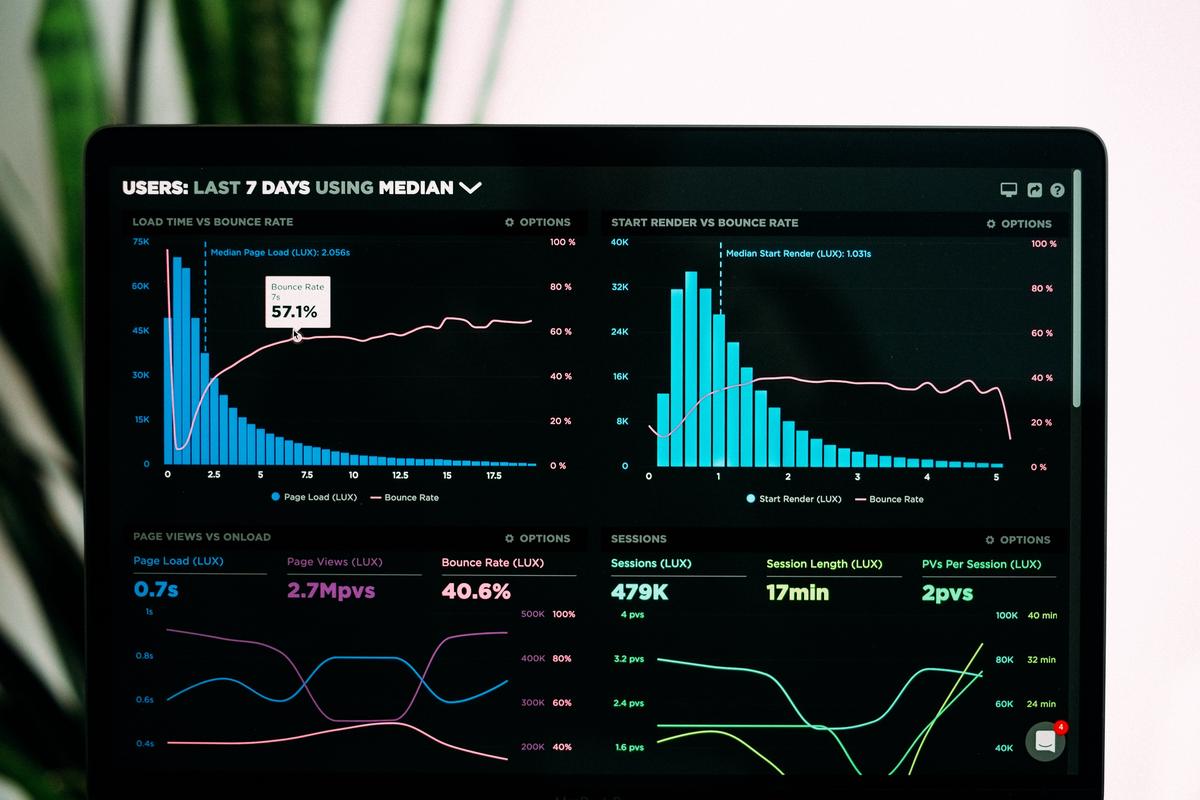Business Intelligence (BI) has permeated virtually every industry, revolutionizing decision-making processes and providing valuable insights extracted from massive amounts of data. Within the healthcare sector, this has meant significantly improved patient care, operational efficiency, and a bevy of other benefits. Through BI, healthcare providers can leverage complex algorithms and data analysis to predict patient health outcomes, streamline operations, and provide unprecedented quality of care. However, like any digitally transformative tool, its implementation is not without challenges. This article will delve into the intricacies of business intelligence in healthcare, recounting its current usage, exploring its potential benefits, examining the challenges faced while implementing it, and pondering the probable future developments within the field.
Defining Business Intelligence in Healthcare
Defining Business Intelligence in Healthcare
Business intelligence (BI) is an umbrella term for methodologies, applications, and technologies that collect, analyze, present, and translate raw data into actionable insights. These processes assist organizations in making informed decisions based on collected entirety of enterprise data. When applied to the healthcare sector, BI can turn the immense amount of raw data into meaningful, practical information that enhances operational efficiency and improves patient outcomes.
Data Analyzed in Healthcare BI
Typically, healthcare BI focuses on several types of data: patient data, electronic health records (EHR), financial data, pharmacy data, and patient satisfaction metrics among others. The variety and complexity of this data necessitate effective BI tools to consolidate and analyze it efficiently and accurately. Patient data involves individual health records, treatment history, and demographic information. EHRs have revolutionized the way patient data is stored and shared, making it electronic, secure, and easily accessible. Financial data includes costs, revenues, insurances, payrolls, etc., while pharmacy data encompass medication records, prescriptions, supply chains, and more.
How BI Software Works
BI software varies in functionality, with some programs emphasizing data collection, others focusing on data analysis, and still others prioritizing data visualization. Although they may operate differently, most BI software incorporates some form of Data Warehousing, Data Mining, Online Analytical Processing (OLAP), and Reporting and Querying software.
Data Warehousing stores the raw data collected from various sources. Data Mining searches through the data to find trends, patterns, correlations, or anomalies hiding among the vast amount of information. OLAP allows more intricate data analysis, letting users interactively analyze the data from multiple views and dimensions. Reporting and Querying software converts these analyses into understandable reports, graphs, and visuals, making the information comprehensible and accessible to non-technical users.
Goals of Healthcare BI
The primary goals of using BI in healthcare are two-fold: improving operational efficiency and enhancing patient outcomes.
By using BI tools, organizations are able to utilize their data more effectively, helping streamline processes, reduce waste, and increase efficiencies. Administrators can identify and eliminate operational inefficiencies and redundancies, streamline workflows, and allocate resources more effectively.
In terms of patient outcomes, healthcare BI provides physicians with the tools to deliver and monitor care more efficiently. By accessing detailed patient profile and medical history, providers can present personalized treatment plans and proactively address health concerns. BI analytics can identify patterns or trends in the data, which can be used to better predict outcomes, monitor patient progress and reduce hospital readmissions.
Another important use of healthcare BI is predictive analytics, which uses historical data and statistical algorithms to predict future outcomes. This is beneficial in many ways including helping healthcare providers identify patients at risk of developing certain conditions, enable more accurate diagnoses and can also promote patient engagement- all of these lead to improved patient outcomes.
Business Intelligence plays a significant role in the healthcare industry, providing the opportunity for optimization of operations and enhancement of patient outcomes through effective data utilization. The ability to analyze and interpret vast amounts of data allows healthcare providers to make more informed decisions that streamline operational procedures, and ultimately enable a more personalized and proactive approach to healthcare delivery.

Current Uses of Business Intelligence in Healthcare
The Power of Predictive Analytics in Healthcare
Increasingly, healthcare providers are recognizing the potential of business intelligence tools for enhancing patient care, with predictive analytics being a standout example. Application of predictive analytics to electronic health records (EHRs) allows healthcare professionals to discern patterns and trends among patients. This can lead to early identification of those at elevated risk of serious conditions such as heart disease, cancer, and diabetes. Predictive analytics employs a combination of historical patient data and cutting-edge algorithms to anticipate future healthcare outcomes. This invaluable insight not only aids in determining the best course of treatment for individual patients but also assists in devising effective preventive healthcare programs.
Real-Time Reporting
Another major application of business intelligence in healthcare is real-time reporting. This involves using digital tools to monitor the health of patients in real time and provide up-to-date information to healthcare professionals. For example, wearable devices and sensor-based systems can provide real-time data on a patient’s heart rate, blood pressure, glucose levels, and other vital signs. Implementing real-time reporting has been found particularly useful in managing chronic conditions, allowing for immediate response in case of emergencies, and improving the overall quality of care.
Hospital Operations Management
Healthcare organizations are also integrating business intelligence tools in their operations management. Through data analysis, hospitals can optimize their workflow and resource allocation, predicting patient inflow, and managing staff schedules more efficiently. The Cleveland Clinic, for example, employed a BI tool that used electronic health records to predict patient volume and subsequently adjust staffing levels, reducing the waiting time and improving patient satisfaction.
Patient Satisfaction and Experience
With the help of business intelligence, healthcare providers can better understand their patients and improve their experience. By analyzing patient feedback, complaint data, and satisfaction surveys, providers can identify key areas of improvement. This not only enhances the patient experience but also improves the hospital’s reputation and credibility in the market. For instance, Geisinger Health System uses BI tools to improve patient experience, leading to lower patient readmission rates and higher scores on patient satisfaction surveys.
Clinical Decision Support
Business intelligence is also increasingly being used to support clinical decision-making. By integrating a BI tool with EHR systems, healthcare providers can access real-time patient data and make informed decisions. This has been particularly significant in areas such as diagnostics and treatment plans. For example, ThedaCare, a community health system in Wisconsin, implemented a BI solution that integrated patient data across multiple sources, improving clinical outcomes and reducing unnecessary tests and procedures.
Fraud Detection and Compliance Management
In the era of digital healthcare, maintaining the confidentiality and security of patient information is of utmost importance. Business Intelligence tools can be used for detecting fraudulent activities and ensuring compliance with health regulations. These tools analyze patterns in the billing data and identify any deviations which may indicate fraudulent claims. Additionally, compliance systems can alert providers to any violations of HIPAA or other regulations.
Conclusion
As evidenced above, the utilization of business intelligence tools such as predictive analytics, real-time reporting, and in-depth data analysis, is becoming increasingly crucial within the healthcare industry. These tools are not only enhancing patient care but are also improving operational efficiency and ensuring compliance with regulatory standards. The challenge, however, lies in healthcare providers’ ability to select the appropriate business intelligence tools that align with their specific needs and capacities.

Benefits of Business Intelligence in Healthcare
Advancement in Patient Care through Efficiency
One of the key areas where the impact of business intelligence (BI) can be seen in healthcare, is in the realm of patient care. Traditional healthcare systems frequently tend to operate in silos, presenting challenges in delivering personalized and consistent care. However, BI merges all the critical data needed for patient care into a unified platform. This promotes efficient patient management and fosters a culture of excellence in patient care. The resulting improvement in the patient experience is not just gratifying for the patients, but is also conducive to healthier outcomes.
Operational Efficiency and Cost Saving
Cost saving is another benefit of using BI in healthcare. Efficiency in operations can lead to substantial savings for the healthcare provider. BI enables organizations to analyze large volumes of data for trends, patterns, and insights, helping to identify overuse of resources and eliminate waste. Additionally, predictive analytics can support better planning and forecasting, reducing instances of unexpected costs that could result from unforeseen situations or inefficient practices.Competitiveness in the Healthcare Industry
Staying competitive in the dynamic healthcare industry can be a daunting task. As healthcare providers strive to offer superior services, BI gives them an edge over their competitors. Through data-driven decision-making, healthcare providers can make timely and informed decisions that positively affect their competitiveness. BI also facilitates the identification and tracking of relevant industry trends and benchmarks, giving healthcare providers a strategic advantage.Patient Safety and Quality of Care
Another benefit of BI in healthcare is improved patient safety and quality of care. By leveraging BI tools, healthcare providers can track clinical data, patient outcomes, and nursing quality indicators in real time, thereby identifying potential areas of patient risk and implementing preventive measures promptly. For instance, with BI, healthcare providers can predict readmission risks, monitor patient conditions more closely, and design more effective care plans tailored to the individual health needs of the patient.Steps Towards Personalized Medicine
In addition to delivering high-quality care, BI technology can also be utilized to create a more personalized patient experience. By collecting and analyzing a broad range of data about each patient, healthcare providers can learn more about individual patient’s health patterns and needs, enabling them to tailor their healthcare services accordingly.Healthcare Fraud and Abuse Detection
BI tools and technologies can also be used to detect fraud and abuse in the healthcare sector. Fraudulent activities not only result in financial losses but can also impact the quality of healthcare services provided to patients. By employing BI modules to analyze patterns and anomalies from historical and real-time data, healthcare providers can detect and prevent fraudulent activities, ensuring better utilization of resources and improved patient care.Business Intelligence (BI) undeniably impacts various sectors, and the healthcare industry is no exception. Remarkable benefits permeate the industry when BI becomes an essential tool, from the enhancement of patient-centered care to the boosted efficiency of operations, fraud prevention methods, and a competitive edge. By optimizing these areas, BI provides the healthcare field with a strategic edge for continued growth and improvement.
Challenges and Solutions in Implementing Business Intelligence in Healthcare
Delving Into Healthcare’s Business Intelligence
When referring to Business Intelligence within healthcare, we’re essentially discussing the strategic application of data analytics tools to healthcare data, thus informing crucial decision-making processes. BI technologies offer crucial insights into financial management, operational efficiency, and most importantly, patient care. While the potential benefits of BI in healthcare are definitely noteworthy, the implementation process is not without its challenges. These hurdles often range from the intricate nature of healthcare data and concerns regarding patient privacy, to the financial burden associated with employing BI technology.
Complexities of Healthcare Data
Healthcare data is vast, complex, and often unstructured, making it difficult to harness and analyze. Medical records, clinical trials, insurance claims, patient feedback, and IoT devices generate an enormous amount of data. In addition, data consistency and standardization can also pose challenges as different healthcare providers often use varying terminologies, systems, and units of measurement.
Privacy Concerns
Another significant hurdle in implementing BI in healthcare is privacy concerns. Strict regulations, such as the Health Insurance Portability and Accountability Act (HIPAA) in the U.S, protect patient data, limiting how and when data can be used. Moreover, with data breaches becoming frequent, ensuring patient data security is paramount.
Cost of Business Intelligence Technology
The cost of implementing BI technologies can be prohibitive for some healthcare providers. This includes purchasing software, hardware components, as well as ongoing costs for system maintenance, upgrades, and staff training.
Possible Solutions
Standardization and Integration of Healthcare Data
Standardization of health data can be achieved by adopting universally accepted terminologies and units of measure across all healthcare systems. Several health information exchange (HIE) programs are also aimed at integrating data from different sources, making it easily accessible and analyzable.
Investing in Data Security
Investing in robust data security measures can alleviate privacy concerns. These could include encryption technologies, secure user authentication methods, and regular security audits. Healthcare organizations should also invest in employee training to prevent accidental breaches and better understand the importance and regulations surrounding patient privacy.
Utilizing Cloud-Based BI Solutions
Cloud-based BI solutions can significantly reduce costs as they eliminate the need for purchasing and maintaining hardware infrastructure. It also allows for easy scalability and flexibility in terms of storage and processing power. These solutions often come equipped with robust security measures in place, addressing data security concerns as well.
Conclusion
Business Intelligence (BI) has been recognized as a significant contributor to efficient modern healthcare. It may entail challenges during its implementation, but with innovative strategies and solutions, these can be tackled effectively. As the crucial role of BI becomes more apparent in the healthcare industry, it serves as a catalyst to revolutionize patient care and boost the industry’s overall efficiency.

Photo by lukechesser on Unsplash
Future of Business Intelligence in Healthcare
The Implementation of Business Intelligence in Healthcare
Business intelligence in healthcare refers to the strategic utilization of data analysis tools, aiming to generate actionable insights that facilitate better decision making. It serves a critical role in understanding trends, analyzing performance, predicting potential outcomes, and aiding in everyday operations. With the healthcare sector generating vast amounts of data, such as patient records, diagnosis reports, surgical outcomes, and cost details, this continual data flow can be harnessed and used effectively through BI, improving service delivery remarkably.
Emerging Trends in Healthcare Business Intelligence
As we move into the digital age, several pioneering trends are set to shape the future of BI in healthcare.
Predictive Analytics:
While analytics has always been a part of healthcare, predictive analytics is a newer trend. This uses historical data to predict future occurrences, which can significantly aid in preventative care. It can assist in identifying high-risk patients, predicting diseases, and providing personalized healthcare based on trends identified in past data.
Artificial Intelligence and Machine Learning:
Artificial Intelligence (AI) and Machine Learning (ML) are becoming integral parts of the healthcare system as they can replicate human intelligence and learn from experience. In particular, they are used to analyze large-scale healthcare data to identify patterns that humans might overlook, enabling more precise diagnosis, treatment, and patient care.
Real-Time Reporting:
Real-time reporting is another trend that will continue to shape the sector. For immediate decision-making needs, it provides instantaneous access to data. This allows doctors and medical personnel to make quick decisions based on the most current and available data.
Potential Impacts of Regulations
The transformation of BI in healthcare will also be influenced by upcoming and existing regulations. Privacy and security laws such as General Data Protection Regulation (GDPR) and the Health Insurance Portability and Accountability Act (HIPAA) have strict guidelines on processing and protecting health information that impacts how healthcare providers can use data and BI tools. Non-compliance with these regulations can lead to heavy penalties and reputational damage, making it as important as ever to ensure that data practices in BI adhere strictly to regulations.
Future of Business Intelligence in Healthcare
The future of BI in Healthcare looks promising with continuous advancements and integration of technology. With the advent of the Internet of Things (IoT) devices in healthcare such as wearable health monitors, embedded devices, and other medical instruments, the data generated could be of significant value when processed correctly.
Furthermore, as healthcare costs keep rising, providers will be under increased pressure to use BI effectively to maximize efficiency and minimize costs. From predictive maintenance of medical equipment to better staffing schedules based on predicted patient inflow, BI could be used in multiple ways to manage and reduce the expenses of healthcare providers.
Regardless of what the future holds, one thing is certain: the role of BI in healthcare will continue to grow.
While ensuring privacy and confidentiality remains critical, the in-depth insights gained from BI will continue to support healthcare providers in improving patient care and hospital management.

With vast amounts of data being processed in the healthcare industry daily, the utilization of business intelligence has become an indispensable strategic tool. From improving patient care and safety to streamlining operational efficiencies, business intelligence is reshaping the health industry landscape. However, with formidable challenges such as healthcare data’s complexity and patient privacy among others to surmount, it is critical to deliberate on accommodating solutions. Through technological advancements and proactive regulations, the future of business intelligence in healthcare looks promising, potentially unlocking new frontiers in predictive analytics and patient care.

Leave a Reply